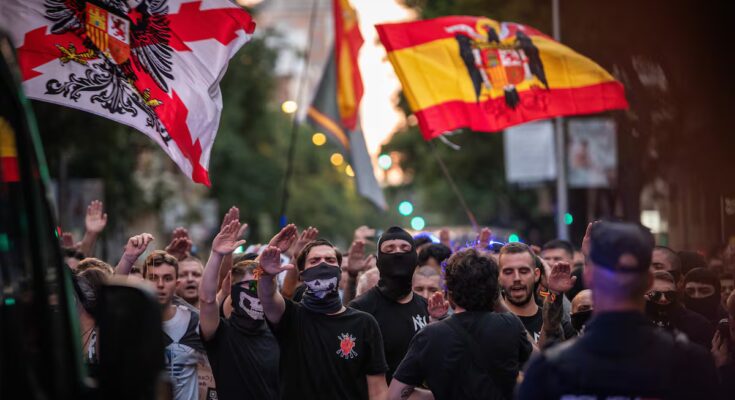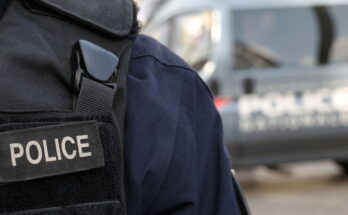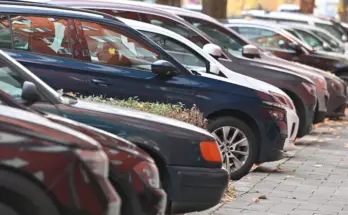The Superior Court of Justice of Madrid does not consider that the fear of hate crimes occurring and victims of the dictatorship being humiliated is a sufficient reason to ban a fascist demonstration called to celebrate the 50th anniversary of Franco’s death and the 89th anniversary of the execution of José Antonio Primo de Rivera. If shouting is heard during the demonstration and the penal code or the law on democratic memory is violated, the court maintains, “the public authorities must react”, even by dissolving the concentration, but “it is not sufficient to have general doubts about the possible negative effects of a meeting to limit or ban it” a priori.
As a result, the Litigation-Administrative Chamber of the said court has lifted the ban on the march called this Friday by La Falange, in which one of the great-granddaughters of the Italian dictator Benito Mussolini plans to participate. The demonstration will take place from via Génova, where the founder of La Falange was born and the national headquarters of the PP is located, up to via Ferraz, where the federal headquarters of the PSOE is located. This was one of the reasons given by the government delegate, Francisco Martín, for banning the procession, since in Ferraz street, in November 2023, to protest against the approval of the amnesty law, gatherings occurred which caused “disturbances of public order” and led to the arrest of 84 people. He added that even after the demonstration called on the 9th by the neo-Nazi organization Núcleo Nacional, riots broke out with objects thrown at the police and containers burned, which led to two arrests. “Far-right mobilizations have already generated serious alterations to public order, so the risk associated with new calls is not hypothetical, but proven and verifiable,” concluded the government delegation, which provided two police risk assessment reports, one which considered it “moderate” and another, from the same day the march was banned, which raised it to the “high” category.
However, the court believes, with the support of the Prosecutor’s Office, that there are no reasons to ban the demonstration since the organizers (La Falange) are different from those of the march on the 9th which ended with accidents (Nucleo Nacional); and, according to the Municipal Police, there are no demonstrations called for this Friday by anti-fascist groups, so there is no risk of clashes between opposing demonstrations. It also excludes the possibility of changing the itinerary of the procession to avoid it ending in via Ferraz, arguing that the choice of location is part of the right to demonstrate, since the specific location seeks to give “greater impact and visibility to the appeal”.
Aware that the responsibility for any hate crime or disturbance of public order will fall on the organizers, Falange has issued instructions to its followers through social networks warning them that only flags distributed by the organization will be allowed, that slogans and chants should not be improvised and that provocations must not be responded to. “Don’t hide your face. We have nothing to hide”, they conclude, distancing themselves from the neo-Nazis of the Núcleo Nacional, who paraded masked through the center of Madrid.
Immediately before the demonstration, the far-right party called its followers to a mass in homage to José Antonio.



